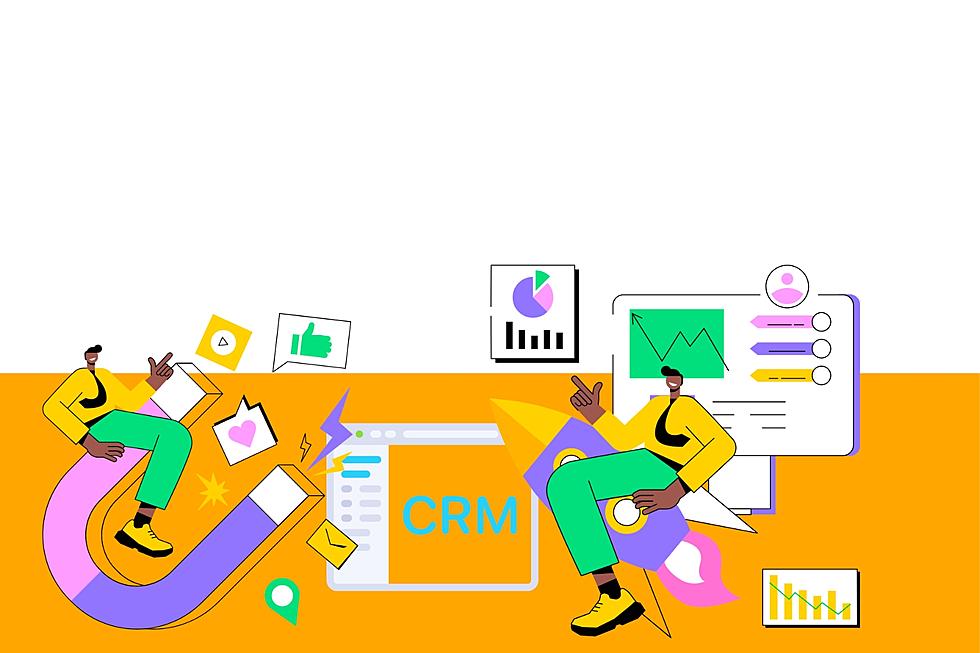
Does Your Small Business Need a CRM? 8 Reasons Why a CRM is Needed for Running Your Business
A customer relationship management platform is an invaluable tool businesses of every size can benefit from. These platforms help streamline customer communication and keep your sales or marketing team on task during the workweek. Not only that, but small business CRMs provide many different time and money-saving opportunities.
If you’re still using Excel or documents to track your client communication, you risk falling behind your competitors and the trends of the digital age. In this article, we’ll discuss why a customer relationship management tool for small businesses is essential to the workplace, and provide a breakdown of some of the small business CRM benefits you can look forward to.
Here’s everything you need to know:
Does Your Small Business Need a CRM?
Is your sales team constantly making calls, sending emails, and setting up appointments or demos with prospects? Does your business depend on the revenue from the clients and connections your sales team makes daily? Whether you work in marketing, construction, or tech – your business needs a small business CRM.
CRMs can be personalized to align with the needs of your business and the workplace dynamic. They are designed to streamline your communication initiatives and ensure there’s never a missed opportunity. If your company relies on old-fashioned ways to track client communication, you’ll never be able to scale your business. You may also find it challenging to increase your book of business effectively.
8 Reasons Why a CRM is Needed for Running Your Business
There are many reasons why a CRM is vital to running your business. These eight small business CRM benefits you can look forward to include:
1. Automate Your Marketing Initiatives
Many CRMs have built-in marketing tools you can use to engage with your customers. You can easily schedule and automate your emails and SMS marketing initiatives to ensure each lead is nurtured and pushed through the sales funnel. These tools are integrated into the platform and designed to take mundane tasks off your team’s plate.
2. Save Time Managing Your Scheduling
CRMs also have scheduling tools you can use to stay organized and to improve the customer experience. These scheduling tools integrate right onto your website. So customers and prospects can easily find a date and time that works with them and set up an appointment in seconds without having to call or email your business.
Your team can then track the appointments and communication in real-time using customer relationship management software. This will help minimize human error and ensure that all appointments scheduled are always on the work calendar.
3. Optimize Your Workflow
With a small business CRM, you can visualize the lead nurturing workflow and find ways to improve your team’s approach to client communication, marketing, and sales. You can also automate mundane workweek tasks and take some of the stress out of the workweek off your team’s plate. You can also analyze your sales cycle length and visualize where deal slippage appears the most in the sales workflow.
4. Manage Your Leads
Small business CRMs make it easier to track leads and assign them to sales reps on your team. If you don’t have a tool to track your leads, opportunities will quickly fall through or be left on the table. With a CRM, you can easily track leads in the pipeline in real-time and ensure a sales rep is always working on the case. You’ll also know who on your team handles what and if customers are efficiently being pushed through the sales funnel.
5. Personalize Your Communication
Clients expect a personalized approach. With a small business CRM, you can personalize your communication and tailor your messaging to align with the needs of each of your prospects. Personalization is essential to nurturing prospecting into loyal customers and maintaining your reputation in your industry.
6. Data and Analysis
Many small business CRMs also have data and analysis tools you can use to better understand your company’s opportunities and challenges. These tools will provide insight into prospects and current customers. You can then use this data to fine-tune your approach to the sales process. You can also better understand conversion rates, revenue growth, and average deal size. These are all key KPIs small businesses should be tracking to improve profitability.
7. Scalability
Once you’re running a small business CRM, you can quickly and efficiently scale your business. These tools take the stress out of mundane tasks, giving your team time back in their day to focus on optimizing the sales process. You can also capitalize on opportunities more quickly and efficiently, helping your team improve productivity during their 9-5.
8. Have One Centralized Location for Client Data
CRMs simplify the workweek, giving your team one centralized location for tracking your customer communication and interactions. If you don’t have one centralized place to monitor your leads, it could be more challenging to understand your customer acquisition cost, sales cycle length, or your current win rate.
The Only Customer Relationship Management Tool You Need
If you don’t already have a customer relationship management tool for small businesses, you’ll never see the profits your business deserves. These are a must-have tool to ensure your team engages and communicates with clients and prospects.
Townsquare Interactive offers a comprehensive business management platform with everything you need to stay organized during the workweek. Our small business CRM paired with our marketing services will give you access to everything you need to grow and manage your small business.
Contact us today to learn more about our small business CRM.
More From WRKI and WINE









